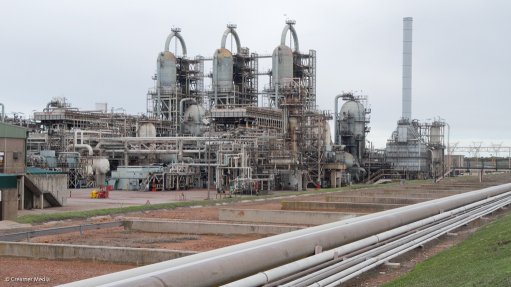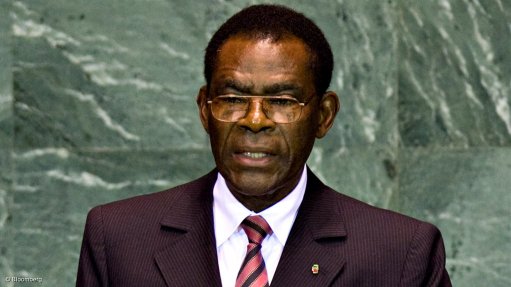Govt, industry agree on way forward for State-owned wireless network
With the Department of Telecommunications and Postal Services (DTPS) to spend the next few months developing the implementation plan for the recently tabled National Integrated Information and Communication Technology (ICT) Policy, Telecommunications Minister Dr Siyabonga Cwele on Wednesday assured that the much-debated issue of spectrum allocation, within the policy, would not leave South African operators out in the cold.
Certain aspects of the policy, in particular, the creation of a multibillion-rand single national wireless wholesale open-access network (Woan) that uses high-demand spectrum – 700 MHz, 800 MHz and 2 500 MHz – had raised concerns of a “nationalisation scenario” wherein all the high-demand spectrum is amalgamated into a State-owned network.
The telecommunications industry had objected to the unclear details and mechanisms under which government’s soon-to-be-established network secures the lion’s share of the spectrum and the intended “recovery” of some of the already licensed resource by six operators, namely Vodacom, MTN, Cell C, Telkom, Multisource and Neotel/Liquid Telecoms.
Discussing this year’s budget through a video link-up to Pretoria from Parliament, in Cape Town, Cwele said there would not be any urgency in the return of the current high-demand spectrum, with the licensees likely to hold on to their resource until the end of their respective current licence terms in 2027/28 to ensure investment certainty.
Cwele said the investment by the sector had increased significantly from R23-billion in 2015 to R28-billion in 2016 – a welcome injection the DTPS did not want to "choke", as it had resulted in South Africa’s improvement in the World Economic Forum Network Readiness Index from a ranking of 75 to 65 in 2016.
“Those with already established networks [will now] have some certainty about their investments,” he commented.
However, Cwele added that the ICT policy itself was set in stone and would not be altered, as the market needed a push to be opened to the other 400-odd operators across South Africa that could obtain a hand-up with access to spectrum.
The move formed part of the department’s ambitions of leveraging open access networks and spectrum as strategic levers to induce real transformation, and lowering of barriers to entry for small, medium-sized and microenterprises (SMMEs) and marginalised groups.
“It is important to realise that without the Woan, the new entrants, particularly black entrepreneurs and SMMEs, will find it impossible to enter this industry,” he explained.
The decision had followed an industry-wide stakeholder meeting last week, where alternate approaches were recommended for the implementation of the policy, including the establishment of the Woan, as well as a commitment from the licensees to buy at least 30% of the existing capacity of the new State-owned network to ensure its viability.
In addition, considering the level of investment in fourth-generation (4G) networks, an urgent high-level study to determine if the Woan would use all high-demand spectrum for fourth-generation networks would be initiated by the DTPS.
It is expected that any remaining spectrum will be licenced to operators with rural coverage obligations.
“In such case, the licensees further committed to buy at least 50% of Woan capacity,” Cwele said.
A date had not yet been determined for the study; however, he assured it would be undertaken as a matter of urgency.
“In the next few months, we intend to finalise the implementation plan.”
The “breakthrough” in negotiating a model for the implementation of the Woan was lauded by the South African Communications Forum.
“The breakthrough is a significant step towards furthering a more competitive and representative ICT sector through the level of equity to be held by black entities in the Woan and the realisation of some of the other transformation goals of the ICT White Paper,” said Economic Chamber of the ICT Forum chairperson Loren Braithwaite Kabosha.
Cwele pointed out that the DTPS was drafting some of the Bills that would be put before Parliament to give effect to the policy.
“At the moment, the department is consulting other government departments,” the Minister concluded, noting that consultations and due processes would be followed.
Comments
Press Office
Announcements
What's On
Subscribe to improve your user experience...
Option 1 (equivalent of R125 a month):
Receive a weekly copy of Creamer Media's Engineering News & Mining Weekly magazine
(print copy for those in South Africa and e-magazine for those outside of South Africa)
Receive daily email newsletters
Access to full search results
Access archive of magazine back copies
Access to Projects in Progress
Access to ONE Research Report of your choice in PDF format
Option 2 (equivalent of R375 a month):
All benefits from Option 1
PLUS
Access to Creamer Media's Research Channel Africa for ALL Research Reports, in PDF format, on various industrial and mining sectors
including Electricity; Water; Energy Transition; Hydrogen; Roads, Rail and Ports; Coal; Gold; Platinum; Battery Metals; etc.
Already a subscriber?
Forgotten your password?
Receive weekly copy of Creamer Media's Engineering News & Mining Weekly magazine (print copy for those in South Africa and e-magazine for those outside of South Africa)
➕
Recieve daily email newsletters
➕
Access to full search results
➕
Access archive of magazine back copies
➕
Access to Projects in Progress
➕
Access to ONE Research Report of your choice in PDF format
RESEARCH CHANNEL AFRICA
R4500 (equivalent of R375 a month)
SUBSCRIBEAll benefits from Option 1
➕
Access to Creamer Media's Research Channel Africa for ALL Research Reports on various industrial and mining sectors, in PDF format, including on:
Electricity
➕
Water
➕
Energy Transition
➕
Hydrogen
➕
Roads, Rail and Ports
➕
Coal
➕
Gold
➕
Platinum
➕
Battery Metals
➕
etc.
Receive all benefits from Option 1 or Option 2 delivered to numerous people at your company
➕
Multiple User names and Passwords for simultaneous log-ins
➕
Intranet integration access to all in your organisation


















